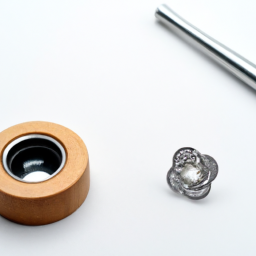Marriage, a sacred bond between two individuals, is a beautiful journey filled with love, companionship, and shared dreams. However, as with any relationship, it is not immune to challenges and hardships. At times, couples may find themselves questioning the strength of their union and pondering the daunting question: can one person fix a marriage? In this blog post, we will delve into this thought-provoking topic, exploring the dynamics of marital relationships and investigating whether it is possible for a single individual to mend a struggling marriage.
Understanding the Role of Individual Effort in Marriage Repair
Introduction
Marriages can go through challenging times, and it’s not uncommon to wonder if one person alone can fix a troubled relationship. While it takes both partners to actively work on a marriage, individual effort plays a crucial role in initiating and maintaining positive changes. In this article, we will explore the importance of individual effort in marriage repair and provide you with a step-by-step guide on how one person can contribute to rebuilding a healthy and fulfilling relationship.
The Power of Self-Reflection
Before embarking on the journey of fixing a marriage, it’s essential to engage in self-reflection. Take the time to assess your own thoughts, emotions, and behaviors within the relationship. Acknowledge your weaknesses and areas where you can improve. This self-awareness is the first step towards personal growth and positive change.
Once you have identified your own shortcomings, it’s important to communicate openly with your spouse about your intentions to work on yourself. Let them know that you are committed to making the necessary changes to improve the relationship. This transparency and vulnerability can create a safe space for open dialogue and set the foundation for mutual efforts in marriage repair.
Remember, self-reflection is an ongoing process. Continuously evaluate your actions, reactions, and attitudes within the relationship. Be open to feedback from your partner and be willing to make adjustments as needed. This commitment to personal growth can inspire your spouse to do the same, fostering a positive cycle of change within the marriage.
Building Emotional Intelligence
Emotional intelligence refers to the ability to recognize, understand, and manage your own emotions, as well as the emotions of others. Developing emotional intelligence is a vital aspect of fixing a marriage as it allows you to navigate conflicts, express empathy, and communicate effectively.
Start by enhancing your self-awareness. Pay attention to your emotional triggers and how they impact your interactions with your spouse. Practice self-regulation by managing your emotions in a healthy way, avoiding impulsive reactions or outbursts. Cultivating empathy is also crucial; try to understand your partner’s perspective and validate their feelings, even when you disagree.
Improving emotional intelligence takes time and effort. Consider reading books, attending workshops, or seeking therapy to further develop these skills. As you become more emotionally intelligent, you will find it easier to navigate conflicts, repair emotional wounds, and foster a deeper connection with your spouse.
Effective Communication
Communication is the cornerstone of any successful marriage. When one person takes the initiative to improve communication, it can have a transformative effect on the relationship. Effective communication involves both listening and expressing oneself clearly and respectfully.
Practice active listening by giving your full attention to your spouse when they are speaking. Avoid interrupting or formulating responses in your mind while they are still talking. Reflect back what you have understood to ensure accurate comprehension. This demonstrates empathy and shows that you value their thoughts and feelings.
When expressing yourself, choose your words carefully and be mindful of your tone. Use “I” statements to express your emotions and needs, rather than blaming or criticizing your partner. Focus on finding solutions together rather than dwelling on past mistakes.
Remember that effective communication is not only about verbal interactions but also includes non-verbal cues. Pay attention to your body language and facial expressions, as they can greatly impact the message you convey to your spouse.
Conclusion
While repairing a marriage requires the commitment and effort of both partners, one person can certainly initiate positive changes and set the stage for rebuilding a strong and loving relationship. By engaging in self-reflection, developing emotional intelligence, and improving communication skills, you can make a significant impact on the dynamics of your marriage.
Remember, every journey is unique, and there may be obstacles along the way. Stay patient, persistent, and open-minded. Seek professional help if needed, as a therapist can provide guidance tailored to your specific situation. With dedication and a genuine desire for a healthy relationship, one person can indeed make a difference in fixing a marriage.

Effective Strategies for One Person to Improve a Troubled Marriage
Marriage is a complex and dynamic relationship that requires effort and commitment from both partners. However, there may be instances where one person feels compelled to take the lead in improving a troubled marriage. While it is ideal for both individuals to actively participate in the process, one person can still make a significant difference by implementing effective strategies. In this article, we will explore some practical steps that can help you, as an individual, to improve a troubled marriage.
1. Self-Reflection and Personal Growth
Before attempting to fix a troubled marriage, it is crucial to engage in self-reflection and personal growth. Take the time to understand your own emotions, thoughts, and behaviors within the context of the relationship. Reflect on your role in the conflicts and challenges you both face. This self-awareness will enable you to identify areas where you can make positive changes and contribute to the overall improvement of the marriage.
Focus on personal growth by investing in self-care activities that promote emotional well-being. Engage in activities that bring you joy and help you manage stress. This can include hobbies, exercise, meditation, or therapy. By prioritizing your own mental and emotional health, you will be better equipped to navigate the complexities of the troubled marriage.
Additionally, consider seeking professional help through therapy or counseling. A trained therapist can provide guidance and support as you work through your personal challenges and develop strategies for improving the marriage. Therapy can also help you gain valuable insights into your partner’s perspective and promote effective communication.
2. Effective Communication and Active Listening
Communication is the foundation of any successful relationship, and it becomes even more crucial when trying to fix a troubled marriage as one person. Focus on enhancing your communication skills by practicing active listening. Give your partner your full attention when they are speaking, and avoid interrupting or formulating responses in your mind before they finish. This will demonstrate your genuine interest in understanding their perspective and foster a more open and productive dialogue.
Express your thoughts and feelings using “I” statements to avoid sounding accusatory or confrontational. For example, instead of saying, “You never listen to me,” you can say, “I feel unheard when I share my thoughts.” This shift in language encourages a non-blaming approach and promotes a healthier exchange of ideas and emotions.
It is equally important to be receptive to feedback and criticism from your partner. Acknowledge their concerns without becoming defensive, and strive to understand their point of view. By creating a safe space for open and honest communication, you can lay the groundwork for resolving conflicts and rebuilding trust.
3. Focus on Empathy, Understanding, and Forgiveness
In a troubled marriage, it is essential to cultivate empathy, understanding, and forgiveness. Put yourself in your partner’s shoes and try to see things from their perspective. Empathy allows you to develop a deeper understanding of their emotions and experiences, fostering a sense of connection and compassion.
Practice forgiveness, both towards your partner and yourself. Holding onto resentment and grudges only perpetuates negativity and hinders the healing process. Letting go of past hurts and focusing on the present can create space for growth and reconciliation.
Remember that improving a troubled marriage is a gradual process that requires patience and commitment. It is essential to celebrate small victories along the way and acknowledge the efforts both you and your partner are making. By implementing these strategies and remaining dedicated to the betterment of the relationship, one person can indeed make a significant impact on fixing a troubled marriage.

The Power of Self-Reflection and Personal Growth in Healing a Broken Marriage
Marriages go through ups and downs, and sometimes they reach a point where they feel broken and beyond repair. However, it is important to remember that one person can make a significant difference in fixing a marriage. By focusing on self-reflection and personal growth, you can take the necessary steps to heal your relationship and create a stronger bond with your partner.
Understanding the Importance of Self-Reflection
Self-reflection is a powerful tool that allows you to gain insight into your own emotions, thoughts, and behaviors. When it comes to fixing a broken marriage, self-reflection is crucial because it helps you identify your own contributions to the problems in your relationship. It allows you to take responsibility for your actions and make positive changes.
Start by setting aside some time for self-reflection. Find a quiet and comfortable space where you can be alone with your thoughts. Reflect on your own behavior and attitudes within the marriage. Ask yourself tough questions, such as:
- How have I contributed to the breakdown of our marriage?
- What negative patterns or behaviors have I displayed?
- Have I communicated effectively and listened to my partner?
Be honest with yourself during this process. It can be challenging to confront your own shortcomings, but it is necessary for personal growth and repairing your marriage.
Once you have identified areas where you need to improve, take action to make positive changes. This may involve seeking professional help, such as couples therapy or individual counseling, to gain further insight and guidance. Commit to personal growth and be open to feedback from your partner. Remember, self-reflection is an ongoing process, and it requires patience and dedication.
Embracing Personal Growth
Personal growth is an essential component of healing a broken marriage. It involves developing new skills, improving communication, and enhancing emotional intelligence. By actively working on your personal growth, you can become a better partner and create a healthier relationship.
Here are some steps you can take to embrace personal growth:
- 1. Develop self-awareness: Pay attention to your thoughts, feelings, and reactions in different situations. Understand your triggers and how they impact your behavior within the marriage.
- 2. Improve communication: Communication is key in any relationship. Practice active listening, express yourself clearly and honestly, and be open to compromise.
- 3. Manage emotions effectively: Learn to identify and manage your emotions in a healthy way. Avoid reacting impulsively and instead, respond thoughtfully to your partner.
- 4. Seek personal development resources: Read books, attend workshops or seminars, and engage in activities that promote personal growth and relationship building.
- 5. Practice empathy and understanding: Put yourself in your partner’s shoes and try to understand their perspective. Show empathy and validate their feelings.
Remember, personal growth is an ongoing journey. It requires consistent effort and a willingness to learn and adapt. By actively working on yourself, you can positively impact your marriage and create a more fulfilling partnership.
The Role of Forgiveness and Patience
Healing a broken marriage takes time, forgiveness, and patience. It is important to acknowledge that both you and your partner may have made mistakes and hurt each other. Forgiveness is a crucial step towards rebuilding trust and repairing the relationship.
Forgiveness does not mean forgetting or condoning the actions that caused the pain. Instead, it is about letting go of resentment and anger, and choosing to move forward with a renewed commitment to the relationship. It requires empathy, understanding, and a genuine desire to rebuild the bond.
Patience is equally important in the process of fixing a marriage. Healing takes time, and it is unrealistic to expect immediate results. Be patient with yourself and your partner as you navigate through the challenges. Celebrate small victories and focus on the progress you are making, even if it seems slow.
Remember, one person can make a significant difference in fixing a marriage. By engaging in self-reflection, embracing personal growth, and practicing forgiveness and patience, you can create a positive change within yourself and your relationship. Healing a broken marriage is a journey, but with dedication and commitment, it is possible to rebuild trust, strengthen the bond, and create a happier, more fulfilling partnership.
Key Takeaways
It is a common belief that it takes two people to fix a marriage, as it requires effort and commitment from both partners. However, it is possible for one person to make a significant impact and initiate positive changes within the relationship. While it may seem daunting to shoulder the responsibility alone, approaching the situation with patience, understanding, and open communication can lead to the restoration of a troubled marriage.
Firstly, it is crucial for the individual seeking to fix the marriage to reflect on their own actions and behaviors. Taking ownership of one’s mistakes and shortcomings can create an environment of accountability and growth. By acknowledging personal faults and actively working on self-improvement, this individual can set an example for their partner and inspire them to do the same. Additionally, practicing empathy and understanding towards their spouse’s perspective can foster a sense of trust and encourage open dialogue.
Furthermore, effective communication plays a pivotal role in repairing a marriage. One person can initiate honest and respectful conversations about the issues at hand, expressing their concerns and desires for the relationship. By actively listening to their partner’s thoughts and feelings without judgment, this individual can create an atmosphere of trust and emotional safety. Implementing healthy communication techniques, such as active listening and compromise, can pave the way for constructive problem-solving and conflict resolution.
While fixing a marriage may seem like an insurmountable task for one person, it is possible to make a positive impact. By focusing on personal growth, actively communicating, and fostering an environment of understanding, one individual can lay the foundation for a healthier and happier relationship. Ultimately, it is important to remember that both partners must be willing to put in the effort to repair the marriage, but one person can certainly take the lead in initiating the necessary changes.
Frequently Asked Questions from our readers:
Q1: Can one person fix a marriage?
A1: While it is possible for one person to initiate positive changes and contribute to the improvement of a marriage, fixing a marriage typically requires the joint effort and commitment of both partners. A healthy and fulfilling marriage is built on open communication, mutual respect, and shared responsibility. Both individuals must be willing to acknowledge and address their own shortcomings, actively work on personal growth, and engage in effective problem-solving together.
Q2: What can one person do to improve a marriage?
A2: Even if one person cannot single-handedly fix a marriage, they can still take steps to positively influence the relationship. Firstly, self-reflection is crucial. Identifying personal areas for growth and taking responsibility for one’s actions can lead to positive changes within oneself and subsequently impact the marriage. Additionally, actively listening to the partner’s concerns, showing empathy, and practicing effective communication can foster understanding and strengthen the bond between partners.
Q3: How can an individual encourage their partner to work on the marriage?
A3: Encouraging a partner to work on the marriage requires a delicate approach. It is important to avoid blaming or criticizing them, as this may lead to defensiveness or resistance. Instead, focus on expressing your own desires for a healthier relationship and the positive impact it can have on both individuals. Engage in open, non-confrontational conversations, expressing your feelings and concerns while actively listening to their perspective. Inviting them to couples therapy or marriage counseling can also be a constructive way to address issues together.
Q4: Is it necessary to seek professional help to fix a marriage?
A4: Seeking professional help, such as couples therapy or marriage counseling, can often provide valuable guidance and support in the process of fixing a marriage. Trained therapists can help facilitate open communication, identify underlying issues, and provide tools and strategies for conflict resolution. However, not all couples require professional intervention, and some may be able to work through their challenges by engaging in open and honest communication, self-reflection, and seeking guidance from trusted sources like books or online resources.
Q5: What if one person’s efforts to fix the marriage are not reciprocated by their partner?
A5: It can be disheartening when one person’s efforts to fix a marriage are not reciprocated by their partner. In such situations, it is important to remember that change takes time and individual journeys may differ. Continue focusing on your own personal growth and well-being, as this can positively impact the relationship dynamics. Engage in open and honest communication with your partner about your feelings and desires for the marriage. If necessary, seek professional guidance to navigate through the challenges and explore potential solutions together.

About Sarah:
Sarah is a certified marriage counselor and co-founder of SaveOurVows.com. Her expertise lies in helping couples reignite the spark in their relationships and create a lasting bond built on trust and understanding. As a devoted wife and mother, Sarah draws from her personal experiences and professional training to offer valuable guidance to couples seeking to save their marriages. Her articles focus on nurturing emotional connection and fostering a supportive environment where love can thrive.
About John:
John is a relationship expert and co-founder of SaveOurVows.com. With a Master’s degree in Marriage and Family Therapy, John is passionate about helping couples navigate the challenges that come with marriage. Having experienced the highs and lows in his own relationship with Sarah, he understands the complexities of married life and believes in the power of effective communication and emotional intimacy. John’s articles offer practical tips and insights to empower couples in their journey to a stronger and more fulfilling marriage.
Together as a Team:
John and Sarah’s mission is to provide a compassionate and supportive platform for couples in need of guidance and encouragement. Through their collaborative efforts, they aim to inspire love and commitment in marriages worldwide. As a couple themselves, they embody the principles they teach, and their dedication to helping others strengthen their relationships is the driving force behind SaveOurVows.com.
Favorite Topics:
Rekindling Romance: John and Sarah believe that rekindling the romance is an essential aspect of any successful marriage. Their articles on this topic offer creative ideas and practical strategies to keep the passion alive.
Effective Communication: Communication is the foundation of a healthy relationship. John and Sarah share expert tips to improve communication between couples and resolve conflicts constructively.
Building Trust: Trust is paramount in any marriage. Through their articles, they help couples rebuild trust and create a secure and loving environment.
Join Sarah and John’s Journey:
Sarah and John invite you to join them on their journey of empowering couples to save their vows and build lasting and fulfilling marriages. Their insights and advice aim to make a positive impact on your relationship, fostering a bond that stands the test of time.






